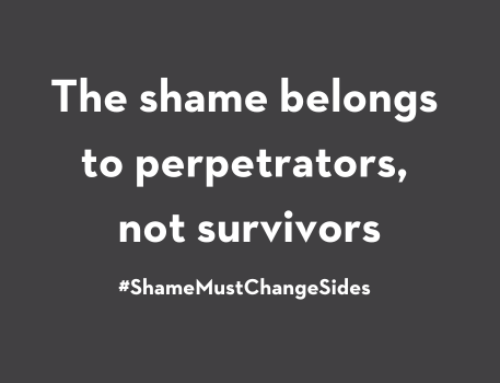We’ve all seen the recent headlines with high profile allegations of domestic abuse. I can’t count the number of times I’ve heard friends and family ask the same question of those stories: “why doesn’t she just leave?”
Too many people assume that if a woman is in an abusive relationship that she is making a choice to stay and that she has the power to end the abuse if she just leaves.
Just as frequently when talking about intimate partner violence, you’ll hear someone say “that couldn’t happen to me” or “I would never put up with it” or “I’d leave the second he raised his hand.” Those words are easy to say. That blame and implicit judgment is easy to hurl.
But today, during the 16 days of action to end violence against women, it’s time to shatter those myths and to ask different questions.
Canadian Women’s Foundation studies shows 67 per cent of us know a woman who has been abused. Domestic violence is an epidemic in our country because it is rarely as easy as “just leaving.”
You may have heard that it’s complicated and that the valid reasons why women stay could be listed on hundreds of pages. That couldn’t be more true. We need to begin to understand, support and believe victims — not blame them.
So why doesn’t she just leave?
She may stay because she fears for her life or the life of her children because he’s threatened what he might do if she dares try to leave.
She may stay because she believes she has nowhere to go. She might not know how the community can support her or the local shelter might be full.
She may stay because everyone thinks her abuser is a “good guy” and she feels ashamed and embarrassed and is sure she’ll be judged and not believed if she speaks out about the abuse.
She may stay because she’s willing to sacrifice her own safety for the well being of her children so they won’t have to grow up in poverty or without a father.
She may stay because her family, friends or community have told her they won’t support her and that they believe divorce is never a viable option.
She may stay because of her immigration status or because her first language isn’t English to be able to reach out for help.
She may stay because she has a disability and is dependent on him for daily care.
She may stay because she grew up in a family where abuse was normal, making it hard to recognize when a relationship is unhealthy.
She may stay because she loves him and he seems to regret the violence. She may want to try to make the relationship work and help him to change.
She may stay because she blames herself. She’s been told it’s her fault and that she deserves to be abused.
It’s time to stop the victim-blaming.
Instead of asking why doesn’t she just leave, we should be asking different questions when we read those headlines.
We should be asking, “Why is he abusive?” or “How can we break the cycle of violence?” or “How can I support her to be safe?”
We also need to ask ourselves why these questions seem so scary. I believe it’s because they – finally – upset the status quo, and shine the light on the real problem.
There are good reasons why women stay.
But there is no reason we can’t work together to stop the violence, for good.







